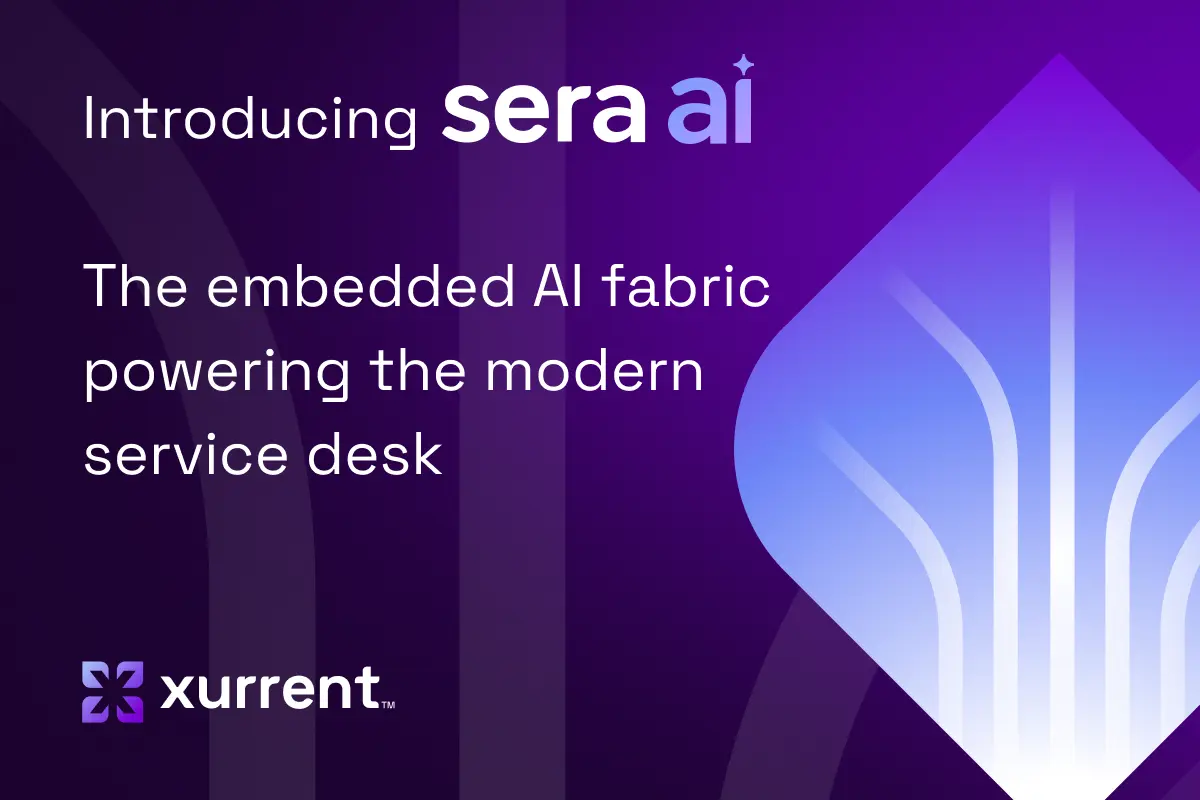Understanding Generative AI in IT Support: Applications and Implications

How AI Will Make Technical Support Agents More Productive and Less Stressed
Introduction to Incident Management
Incident management is the backbone of any organization’s ability to respond to unplanned interruptions—those moments when business operations grind to a halt and every minute counts. The primary goal of incident management is to restore normal service operation as quickly as possible, minimizing disruption and protecting both customer satisfaction and brand reputation.
A well-structured incident management process covers everything from incident identification and prioritization to incident response and post incident analysis. Each step is designed to ensure effective incident management, so that issues are resolved efficiently and lessons are learned for the future. By leveraging artificial intelligence and machine learning, organizations can streamline these processes, reduce operational costs, and deliver higher service quality. The result? Faster recovery, happier customers, and a stronger business overall. Now, let's see how AI can reduce stress and increase productibity for the often overworked IT support agent.
A Day in the Life of a Technical Support Agent
Every support manager has seen it. An agent logs in to 42 unread tickets, 6 Slack pings, and a customer yelling over a minor bug.
By 10 a.m., they’ve resolved nothing but fielded everything.
Reddit calls it the “Hell Desk.” It’s a nickname born from shared misery—not exaggeration. Posts from real support agents show how burned out they feel from constant multitasking, endless resets, and tools that don’t keep up. One thread even joked, “At least AI might finally teach people how to use a backslash.”
Behind the humor is a real issue: today’s technical support agents work across five to six channels at once, handle high-volume customer expectations, and try to keep their emotions in check through it all. Each team member plays a critical role in the support process, and their ability to collaborate and communicate effectively is essential for success. Many teams must work together to resolve complex issues, which can create additional challenges in coordination and communication.
This system is stretched. The right technology enables teams to work more efficiently and collaboratively, streamlining workflows and improving response times. And it needs to change. Improving workflows can also enhance the employee experience for support agents, leading to greater satisfaction and productivity.
What You’ll Learn in This Blog
We’ll break down:
- The root causes behind tech support burnout, and why identifying the root cause is essential not only for agent well-being but also for preventing recurring incidents
- How generative AI reduces stress and improves speed
- How to manage your knowledge base using AI
- How to deflect cases before they overload your team
- What real productivity gains look like on the ground
- Why AI makes support more human, not less
Problem management focuses on diagnosing and addressing the root cause of issues to prevent future incidents.
Let’s get into it.
Incident Management Process: Where the Bottlenecks Begin
Every incident management process follows a series of steps: incident detection, initial diagnosis, incident prioritization, and finally, incident resolution. But in practice, bottlenecks can appear at any stage—slowing down response times and making it harder to resolve incidents quickly.
Manual triage, unclear priorities, and repetitive tasks can all add unnecessary friction. This is where incident management software powered by natural language processing and generative AI tools makes a difference. By automating incident classification and assignment, these tools help teams focus on high priority incidents and speed up the path to resolution. The result is a smoother process, improved service quality, and a support team that can handle more incidents without burning out.
81% of Agents Face Daily Emotional Stress. AI Reduces That Load
Support professionals are not underperforming. They are overwhelmed.
Ticket volumes are higher. Expectations keep rising. But the tools haven’t evolved quickly enough.
According to Zendesk’s 2023 Customer Experience Trends Report, 35 percent of companies are increasing automation investments to meet this complexity. Customers now expect seamless experiences across every touchpoint. Yet agents remain stuck navigating fragmented workflows.
The emotional cost is even greater. A 2023 report by Talkative found that 81 percent of support agents face emotional or verbal abuse from customers on a daily basis. That kind of environment drains morale and affects long-term retention.
Generative AI enters at this point. It does not replace agents. It supports them by taking away the manual, repetitive, and emotionally draining tasks that weigh them down.
The Hidden Cost of Manual Workflows in the Incident Management Process
Beyond stress, manual workflows carry a financial and operational cost. Repetitive actions—like tagging, sorting, and copying answers—don’t scale well. For most companies, the average cost per support ticket ranges between $15 to $25. When agents spend time on tasks that AI can do in seconds, that number grows without improving service quality.
Multiply that by thousands of tickets each month, and you’re looking at a significant hit to your support budget. Generative AI helps lower this cost per interaction while giving teams time back for high-impact problem-solving. This is where productivity gains become measurable.
Save Hours Each Week by Automating the First 5 Steps of Every Ticket
A large portion of the day is lost before an agent even starts solving.
They manually sort tickets, tag them, read through historical data, find the right knowledge base link, and then finally begin replying.
Generative AI handles these steps in the background. It classifies incoming issues, helps prioritize incidents based on urgency and business needs, routes them to the right team or appropriate team for faster resolution, and recommends solutions based on past cases.
It even adapts as your team works.
Take Alex, a platform support agent handling 30 tickets a day. Before AI, Alex spent the first 90 minutes every shift organizing their inbox, figuring out which tickets needed priority, and checking past conversations. With AI in place, that prep now takes 15 minutes. Multiply that time saved across a week or a month, and the team has gained hours to work on real, thoughtful resolutions. This extra time allows agents to focus on other tasks that require human expertise. Integrating an on call schedule with AI ensures the right expertise is available when needed. AI also helps teams resolve issues more efficiently.
The more AI observes your team’s activity, the smarter it becomes. The result is less delay and a faster path to resolution, without cutting corners.
Call Management and AI: Smarter Conversations, Happier Agents
Call management is a critical part of incident management, especially when customers need real-time answers. With AI-powered call management systems, organizations can transform every conversation—making them smarter, faster, and more satisfying for both agents and customers.
AI models analyze historical data to identify trends and predict similar incidents before they escalate. Virtual agents can handle common queries, freeing up human agents to focus on complex issues that require empathy and expertise. This not only reduces operational costs but also improves response times and customer satisfaction. By integrating AI into call management, support teams can deliver a better customer experience and keep agents happier, even during high-pressure moments.
22% of Tickets Can Be Deflected Before They Reach the Queue
Case deflection used to mean long FAQ pages and hard-to-find help buttons. Today, it’s smarter and more seamless.
As customers type into a contact form or chat, generative AI analyzes intent and instantly recommends relevant articles. If they continue, the bot asks follow-up questions to guide them to a solution without needing an agent. The service desk integrates these AI-driven self-service features to streamline support, allowing users to submit incidents, track their status, and access resolution resources from a centralized hub.
Rezolve.ai found that up to 22 percent of tickets can be fully handled by AI through intelligent routing and smart article suggestion.
That’s a significant reduction in inbound volume. It means your agents stay focused on real problems instead of simple, repeat questions. Effective incident communication during self-service interactions keeps users informed and satisfied throughout the resolution process.
This is where generative AI makes a direct impact on support agency productivity.
How AI Helps During Peak Volume Spikes
Ticket volume spikes can cripple support teams—especially during product launches, feature updates, or outages. During these moments, AI plays a critical role in maintaining stability. Major incidents require immediate attention and specialized handling, as they can significantly impact business operations and demand a coordinated response.
Instead of scrambling to sort through hundreds of new tickets, AI steps in to categorize and assign them in real time. Common issues get deflected or auto-resolved. Critical ones are flagged and escalated with context. A dedicated incident management system supports the management of a major incident and ensures proper escalation and resolution.
This allows your team to keep control during chaos and focus on issues that require human thinking. Unresolved or complex incidents are escalated for further investigation to identify underlying causes. That calm translates directly into better outcomes for both the business and your customers.
Your Knowledge Base Can Keep Itself Updated for Better Incident Management
Your knowledge base is the heart of your technical support platform. If it is outdated, too long, or hard to search, it slows everyone down.
AI tools fix that in real time. AI applications such as machine learning and natural language processing are used to automate knowledge base updates and provide intelligent recommendations.
They identify which articles are being used and which ones are ignored. They flag outdated or broken links. They summarize long guides into short, relevant answers. And they track incoming tickets to recommend new article topics.
Platforms like Xurrent already use this approach. Our system recommends articles live as the agent types, automates the creation of knowledge articles from solved requests, and even triages important tickets to the right tech.
With AI handling the maintenance, your knowledge base becomes a proactive resource, not a static archive.
Workflows That Took 20 Steps Can Now Take 3
The most obvious benefit of AI is time. The key benefits of AI-driven support include increased efficiency, improved accuracy, and greater scalability.
Tasks that used to take 20 steps now take three. Agents don’t need to jump across tabs or scroll through past tickets to find context. AI does that instantly. Using the right tools, such as incident management systems and workflow automation platforms, is essential for maximizing these improvements.
But the real value goes deeper than speed.
Small teams begin to handle more without hiring. Devops teams can leverage AI to enhance collaboration and incident response, further increasing operational efficiency. Agents spend time on what they were trained for, not repetitive actions. Customers receive help faster, with better consistency. And managers finally get clear data to improve decisions. Incident management systems integrate these features to streamline support operations and reduce downtime.
These changes shape a support culture that is sustainable, focused, and much easier to scale.
Continuous Improvement: AI Learns and Grows With Your Team
Continuous improvement is at the heart of effective incident management. With every incident, there’s an opportunity to learn, adapt, and prevent future incidents. AI and machine learning make this process smarter and more proactive.
By analyzing historical data, AI models can identify trends and patterns that might otherwise go unnoticed. Generative AI tools automate routine tasks and help teams resolve incidents faster, while also providing insights for process improvements. This ongoing cycle of learning and adaptation reduces operational costs, improves service quality, and boosts customer satisfaction. The more your incident management process leverages AI, the more resilient and responsive your team becomes—turning every incident into a chance for growth.
AI Doesn’t Replace Roles—It Elevates Them and Improves Service Quality
The most common fear when introducing AI into support is job loss. But the real story is very different.
AI removes busywork, not talent. It allows agents to grow into more strategic roles—like support engineers, technical consultants, or QA collaborators. Instead of answering password reset questions all day, agents can start owning customer insights, managing account escalations, or advising product teams.
This is already happening across platform companies where AI co-pilots assist agents in real time. These roles are evolving, not disappearing. Human-centered AI ensures that technology supports and enhances the human aspects of support roles, focusing on employee needs and meaningful interactions within HR processes.
Best Practices for AI-Driven Incident Management
To unlock the full potential of AI-driven incident management, organizations should follow a set of proven best practices. Start by automating repetitive tasks with generative AI tools and using natural language processing to improve incident classification. Prioritize incident prioritization—ensuring high priority incidents are addressed quickly and efficiently for effective incident management.
It’s also essential to provide ongoing training and support for human agents, so they can work seamlessly with AI-powered systems. Regularly monitor and evaluate your incident management process to spot areas for improvement and keep service quality high. By adopting these strategies, organizations can reduce operational costs, enhance customer satisfaction, and build a robust incident management process that’s ready for whatever comes next.
What a Real AI-Driven Support Day Looks Like
Let’s say your platform serves customers across the globe.
Your agents log in each morning to a wave of new tickets, unclear priorities, and limited context.
Now imagine the same team with AI integrated into the workflow. Support teams leverage AI to automate routine tasks, allowing agents to focus on complex problem-solving and deliver faster, more efficient service.
Tickets are sorted and routed automatically. Repeat questions are handled before escalation. Complex cases arrive with suggested solutions and full context. The knowledge base has already updated overnight based on the past day’s trends.
Instead of chasing problems, your agents start solving them.
Support Gets More Human, Not Less
One common worry is that AI will remove the personal touch in support. The opposite is true.
When agents are no longer buried in admin work, they respond with empathy. They have time to think, to write clearly, to resolve the full issue.
Support becomes less about closing tickets and more about helping people.
That shift builds trust. It improves the customer experience. And it creates a calmer environment inside your team.
Give Your Team Back Their Focus With Xurrent
Your technical support agents didn’t sign up to become glorified routers or template machines.
They joined your platform to help users, fix real issues, and make something run smoother than it did yesterday.
But they can only do that when the noise gets cleared.
At Xurrent, we help support teams transform that experience—without changing their structure. Our AI platform reduces repetitive work, increases accuracy, and keeps your team working in flow.
Generative AI helps you scale without pressure. Improve productivity without burnout. And bring joy back into your agents’ day-to-day.
Let’s talk.
It’s time to make support feel like support again.


Xurrent named a Market Leader in Research In Action’s Vendor Selection Matrix™ for IT & Enterprise Service Management Solutions
Xurrent earns #1 rankings in customer satisfaction, price vs value, and recommendation index in Research In Action's global ITSM/ESM Vendor Selection Matrix report.




